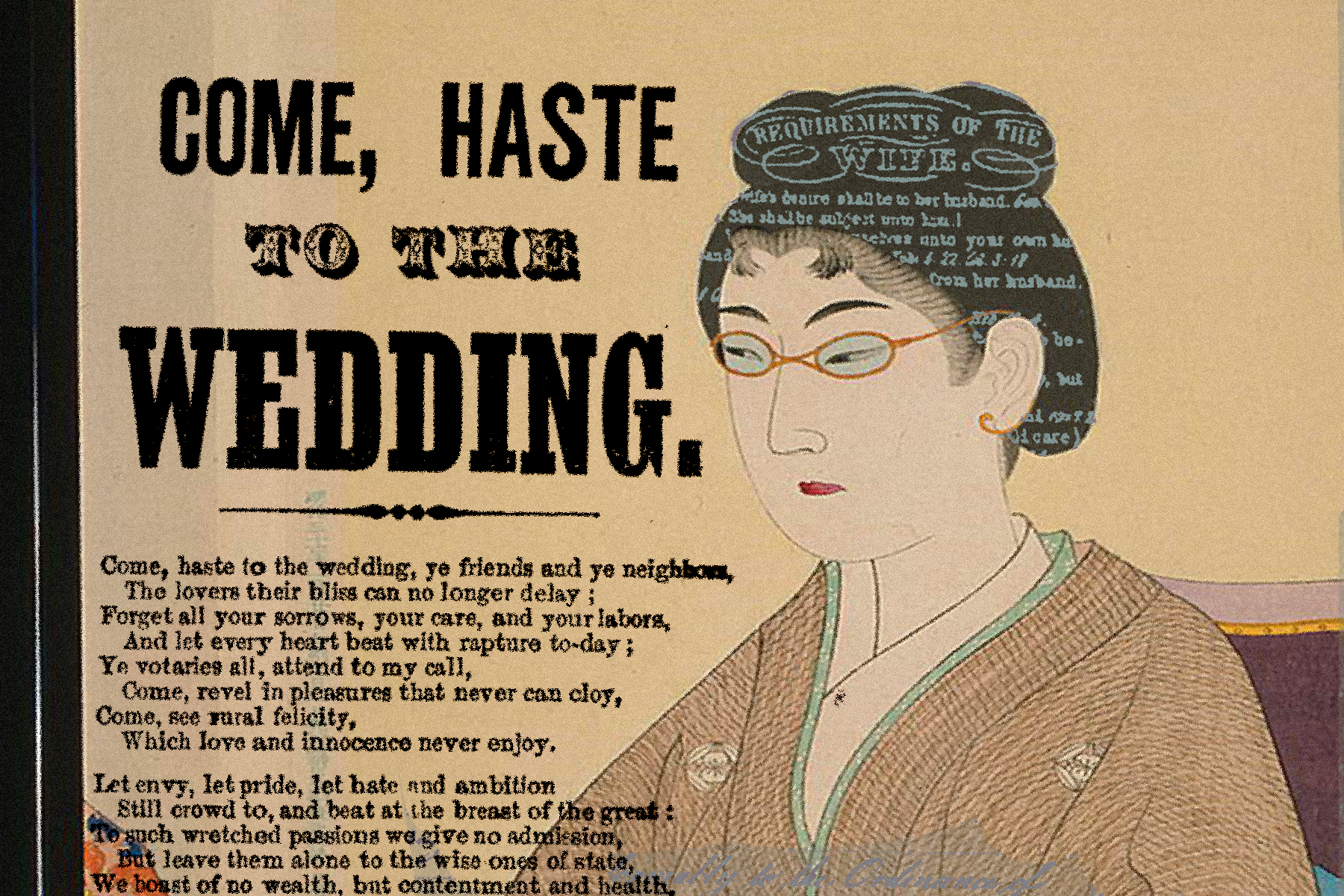Post WWII Asian War Brides married the enemy, risking their familial honor for a life of xenophobia and gender roles, but ultimately a lavish life with their new American husbands. Decades later, mail-order brides relish in the bank accounts of their exploited American husbands without lifting a finger. Whether Asian women marry U.S. foreigners for love or money, their resilient and go-getter attitude re-imagines the scope of “American” marriage as a catalyst for social change.
December 28, 1945 changed the lives of thousands of Asian women yearning for the American dream. For the next two decades, around 200,000 Korean, Japanese and Filipino women married their way into America as “war brides” betrothed to soldiers during WWII and the wars to follow. Though perceived as pacifist homemakers and cultural traitors, these Asian women paved the way for interracial marriage rights and bridged xenophobic gaps in America.
Post-WWII war brides pressured the U.S. to pass the 1945 War Brides Act in December. The law removed quotas from the 1924 Immigration Act and allowed for expedited admission into the U.S. The 1945 act provided more benefits for European wives than Asian wives due to anti-Asian sentiment behind the 1924 act, which prohibited any Asians into the U.S. Engagements between American soldiers and Asian women led to amendments to the 1945 act eliminating barriers to entry for Indian, Korean, Japanese, Filipino and Chinese women. Such amendments saw around 45,000 Asian war brides coming to the U.S.
Once admitted into the U.S, Asian war brides had to marry within three months in order for permanent residency. Many struggled assimilating into American society because of racism. Japanese war brides in particular worked hard to dismantle skepticism between their homeland and the U.S. following WWII.
Japanese women attended war bride classes to learn about American customs but ultimately used these classes as a way to strategize a balance between re-forming Japan’s negative image through integrating Japanese culture in America. They were proud of their culture and the mixed-race families they created, changing the face of the American nuclear family from white to intercultural.
After the Vietnam War, foreign Asian wives morphed into what is now called a mail-order bride. Mail-order marriages are arranged by American men who choose their future bride in a catalog. The term “mail-order” is often seen as racist because most mail-order brides come from impoverished countries, reinforcing economic disparities.
Though the perception of mail-order marriages as human trafficking crimes and pathways for domestic violence are true in many cases, this is not the case for all Asian mail-order brides, who are taking back power in the phrase “mail-order”. At the same time, they change the socio-cultural landscape of Asian empowerment similarly to war brides.
Mail-order marriages can be a form of reparative feminism that de-colonizes oppressive systems, especially against women of color. Family law professor Maria Zug from the University of Southern California dissects the feminism behind Filipino and Cambodian mail-order brides who put themselves in a position of economic power through American marriages.
Case studies from Filipino mail-order brides reveal the tenacity and independence they harness once in America. Many have their own jobs, are confident in their destinies and use their income to provide for their families back home contrary to assumptions they splurge on themselves. Marriage becomes a tool for economic opportunities and the freedom to have better work opportunities otherwise restrictive in their home countries.
Mail-order brides who do take advantage of a sedentary lifestyle practice what Chinese scholars Angela Wu and Yige Dong call “entrepreneurial feminism” (C-fem). C-fem rejects the notion that Asian mail-order brides victimize themselves against American men for a green card. Entrepreneurial feminism emphasizes taking advantage of American stereotypes that fetishize Asian women as exotic and “the perfect traditional wife”.
Scholar Monica Liu summarizes, “smart women adeptly manipulate their sexual appeal and cultivate domestic skills to attract men for material gains.”
Mail-order marriages may appear counterintuitive to Western feminism. Liu argues one must consider that China’s modernization excludes women from workforce opportunities. Western women see feminism through the lens of workforce participation because they have more freedom to do so.
C-fem asserts most mail-order marriages are consensual exchanges of sexual satisfaction from Chinese mail-order wives and economic security from their husbands.
Despite very different reasons for marrying American men, Asian war and mail-order brides took advantage of marriage to change the socio-cultural landscape of Asians in America. War brides planted seeds embracing Asian inclusion, diversifying the image of marriage, family and love.
Asian mail-order brides take advantage of marriage as a form of economic empowerment through their clever and strategic use of stereotypes that balance the power between their American husbands and themselves. War brides and mail-order brides speak volumes for the power of marriage as a catalyst for feminist movements that don’t revolve around sacrificing themselves to their American husbands. They are radical, empowered forces to be reckoned with.

















